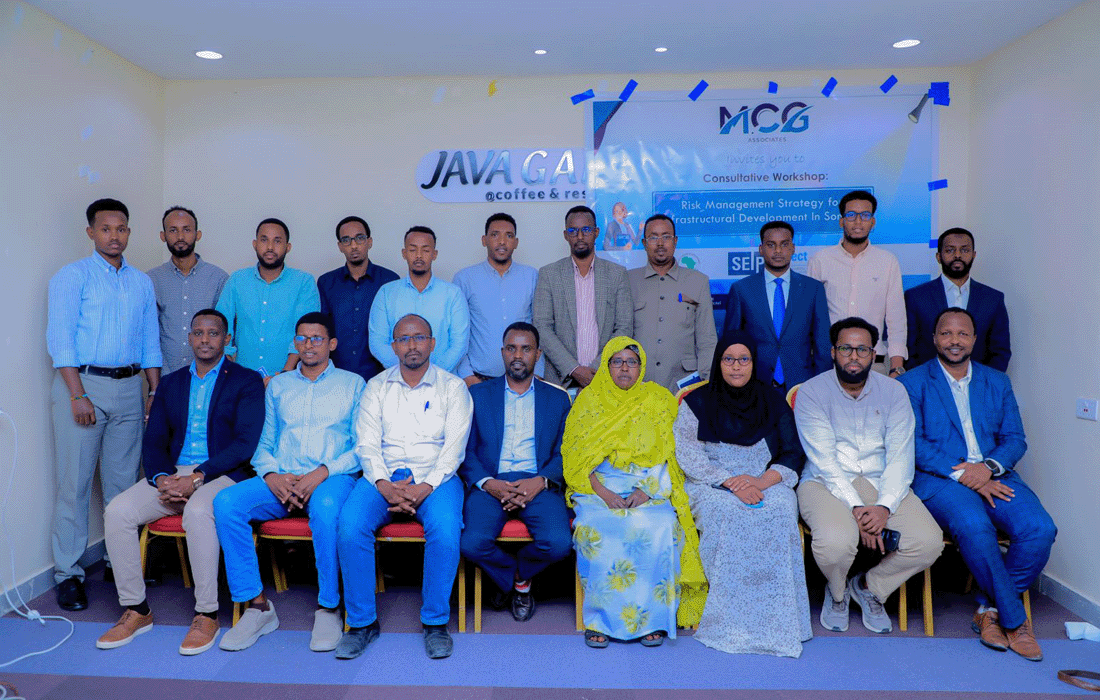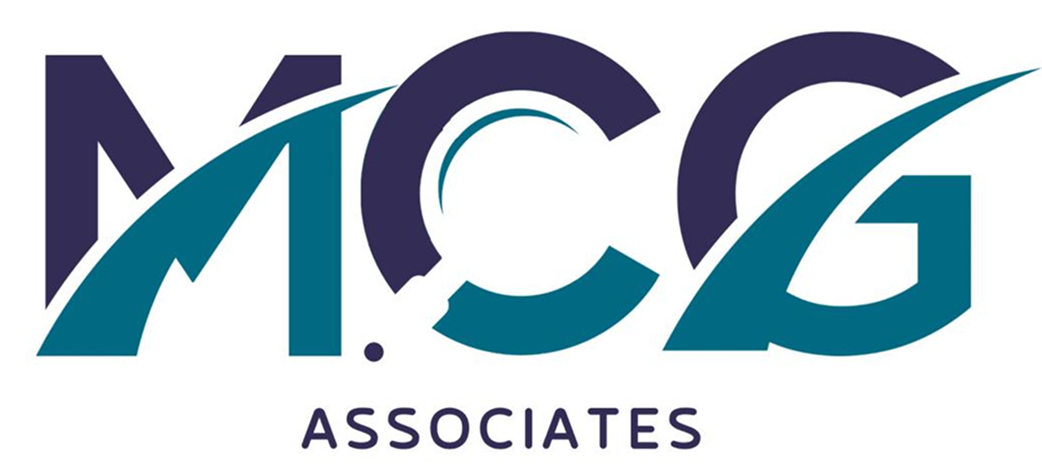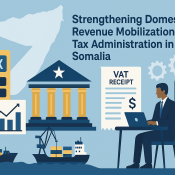
Risk Management Strategy Development in Somalia
Executive Summary
This workshop convened stakeholders from government agencies, international partners, engineers, and local communities to address risks hindering infrastructural development in Somalia. Key objectives included identifying sector-specific risks, assessing their likelihood and impact, and formulating actionable mitigation strategies. Participants prioritized risks such as political instability, funding shortages, environmental hazards, and weak institutional capacity. Consensus emerged on integrating risk management into national planning frameworks and fostering multi-stakeholder collaboration. Immediate next steps include finalizing a national risk registry and piloting community-led monitoring systems.
The consultative workshop on Risk Management Strategy Development in Somalia was convened with the primary objective of strengthening national capacities to identify, assess, and mitigate risks affecting infrastructure development and governance. Given Somalia’s unique socio-economic and political landscape, it is imperative to establish a comprehensive risk management framework to enhance resilience and sustainable development. The workshop gathered key stakeholders, including government representatives, Project coordinators, risk management experts, civil society organizations, and private sector actors. These participants engaged in an in-depth discourse on the risk landscape in Somalia and explored strategic solutions to address prevailing and emerging risks. The workshop served as a platform for knowledge-sharing, consensus-building, and collaborative planning to develop an effective risk management strategy that aligns with national development priorities and international best practices.
Workshop Objectives
The consultative workshop on Risk Management Strategy Development in Somalia provided a valuable platform for in-depth dialogue, stakeholder engagement, and strategic planning. The expert presentations enriched participants’ understanding of global best practices, while the working group discussions generated context-specific solutions tailored to Somalia’s unique challenges.
The workshop’s key findings and recommendations will serve as the foundation for developing a National Risk Management Strategy that will integrate risk mitigation measures into Somalia’s policy, governance, and infrastructure development planning.
Moving forward, further engagement with stakeholders, capacity-building initiatives, and continued collaboration between government, private sector, and development partners will be essential for ensuring the effective implementation of the strategy. The recommendations from this workshop will be consolidated into a formal risk management framework and shared with relevant institutions for adoption and execution.


